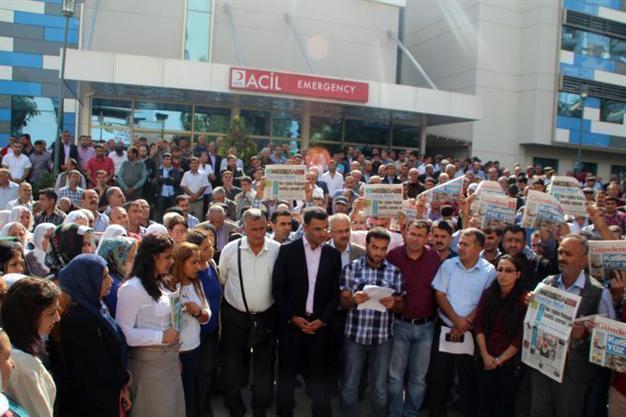Seller of Kurdish newspapers shot dead in Adana street
ADANA

A group of protesters gathered in front of a hospital to which Bagdu was rushed after being shot on Oct. 14. DHA Photo
A delivery man for dailies Özgür Gündem and Azadiya Welat was shot dead on Oct. 14 while conducting his work in the southern province of Adana.Kadri Bağdu, 46, was distributing his newspapers when two individuals on a red bike opened fire before escaping. Bağdu, who had a press card as an Azadiya Welat worker, had been doing his job for 17 years, according to reports.
Police found five empty shells at the crime scene and have launched a search to find the perpetrators.
Özgür Gündem prints in Turkish while Azadiya Welat prints in Kurdish, although both follow a similar editorial line.

Kadri Bağdu, had been delivering
newspapers for 17 years.
“Many times, our friends have been targeted in coordinated attacks in which the police were also involved,” Karakuş said.
Tensions in southeastern Turkey have peaked, reaching such levels for the first time since the start of the Kurdish peace protest, particularly after many Kurdish protesters took to the streets to protest against the assault of Islamic State of Iraq and the Levant (ISIL) militants on Kobane and to denounce the government’s stance on the matter.
Over 37 people died, mostly in street clashes between supporters of Kurdish political movements and members of the Free Cause Party (Hüda-Par), whose grassroots are closely affiliated with the Turkish radical Islamist movement Hizbullah.
Another worker at Azadiya Welat, Bişar Durgut, was stabbed eight times in Diyarbakır earlier this month.
The attack was also condemned by Reporter Without Borders (RSF), which expressed its concerns that the targeted killing “could carry Turkey back to the darkest hours of its recent history.”
















